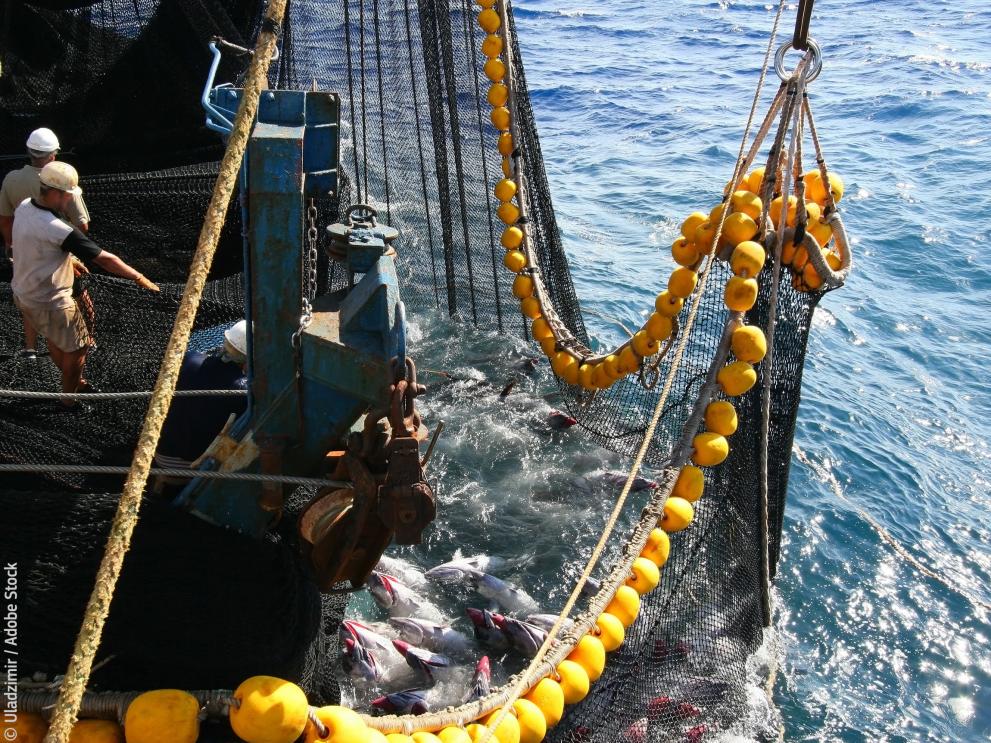
After 8 days of intense negotiations, the EU and the 49 Contracting Parties of the International Commission for the Conservation of Atlantic Tunas (ICCAT) have concluded this year’s annual meeting. Despite the challenges of virtual format, the meeting ended with an overall positive outcome for both the EU and ICCAT, and saw the adoption of some key measures to ensure the conservation and better management of ICCAT fisheries.
The long awaited measure for North Atlantic shortfin mako (SMA) is one of the biggest achievements of this year’s meeting: the EU played a key part in the outcome, notably by tabling a revised version of the Chair’s text that served as the basis for the final agreement, as well as through its involvement in the drafting.
The measure foresees the start of an ambitious rebuilding programme for this important species with a focus on driving current mortality down to sustainable levels and charting a path for recovery of the shortfin mako. A 2-year prohibition on the retention of SMA will come into force to stop overfishing immediately and drive down mortality. Moreover, the plan contains complementary measures such as best handling practices to increase the survivability of incidental catches and a scientific process to explore in the future a range of mitigation measures from spatial and temporal closures to gear modification. Finally, it also contains an incentive for the fishing sector to go beyond the targets set by the plan by allowing a limited degree of retention of dead fish if mortality levels are driven below the target level.
Unfortunately, despite the EU’s best efforts, no agreement was reached on a recommendation on a new multi-annual conservation and management programme for tropical tunas. This resulted in the rollover of the current temporary measure to 2022 with a last-minute compromise proposal containing a 72-day closure of fish aggregating devices (FADs) at the beginning of 2022 and a minor total allowable catch increase to 62,000 tonnes. Much work will still be needed over the next year in ICCAT in order to ensure that a robust measure can be adopted for 2023. This is a very disappointing outcome and EU will continue its efforts so that the future Tropical Tunas programme contains such measures as better FAD management and increase in the total allowable catch in line with scientific advice. In fact, the EU had tabled an ambitious proposal which, building on the progress achieved intersessionally, would have tackled some of the key outstanding issues, namely: setting of the total allowable catches (TAC) for bigeye tuna (BET) reflecting the improvement in the situation of the stock, the reallocation of fishing opportunities to developing coastal states to secure a more equitable distribution of fishing opportunities, better management of fishing capacity, the management of FADs and also improvement monitoring, control and surveillance (MCS) measures of the fishery.
The EU, as the main player in the Northern albacore fishery, this year took the lead by tabling to ICCAT a forward-looking proposal to upgrade the existing harvest control rules to a fully-fledged Management Procedure. The measure, now successfully adopted, is a big step forward for a more effective and efficient management of this fishery. It is the very first complete management procedure to be adopted by ICCAT, which truly marks a milestone in the management of Northern albacore and an example for the development of future management procedure for other fisheries and stocks. The EU also tabled the proposal for rebuilding plan for Mediterranean albacore, that was adopted by the ICCAT Commission. The new TAC and a set of management and conservation measures will allow ICCAT to rebuild the stock with a 60% probability by 2036.
On bluefin tuna in the Eastern Atlantic and the Mediterranean, the EU was again the leader in substantially strengthening the monitoring, compliance and control measures through an ambitious in-depth revision of the existing recommendation (i.e. Recommendation 19_04). With a comprehensive set of modifications the EU ensured that potential loopholes in the controls of farming activities were addressed.
Eventually, the EU candidate, Mr Ernesto Peñas Lado, was elected to Chair of ICCAT. Mr Peñas Lado has a wealth of experience in fisheries, not only in the European Commission, where he worked on the EU’s common fisheries policy, but also as the Head of the EU delegation to ICCAT from 1997 to 2001.
Details
- Publication date
- 24 November 2021
- Author
- Directorate-General for Maritime Affairs and Fisheries
